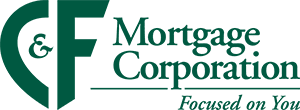HELOC vs Cash-Out Refinance – Which Is Better?
If you’ve accumulated equity in your home and are seeking to tap into it for a large purchase, home renovation or debt consolidation, it’s important to understand your options and determine which is best for your needs. After all, your equity is hard-earned, so you want to ensure you’re managing it most effectively! Read on for a few ways you can utilize your home’s equity.
What Is Equity?
First off, let’s define equity. You earn equity in your home via the principal paid as part of your mortgage payment. You also earn equity as property values appreciate, so if your home value has increased due to market changes, you’ll have more equity built up. If you were to sell your home, you would receive a cash payout for the equity you’ve built while owning your home (less the amount you still owe on the mortgage and other related mortgage fees).
What Is a HELOC?
A HELOC, or home equity line of credit, allows you to draw funds from your home’s equity over time, repaying it via monthly principal and interest payments. You will take out a second mortgage or loan borrowing against your equity, as opposed to a traditional refinance where you replace your old mortgage with a new mortgage and new terms. It’s important to note that HELOCs typically come with an adjustable interest rate, so the amount you’ll pay back monthly will vary based on the market rates (plus how much equity you’ve tapped into). A HELOC can be beneficial if you are tackling home projects but may not have an exact timeline for these projects. Since it’s a line of credit that is open for some time (often, 10 years), you can utilize these funds anytime within that period.
What Is a Cash-Out Refinance?
Unlike a HELOC, which provides you with access to a credit line, a cash-out refinance gives you a lump sum of cash once you complete the loan process. This cash comes from the equity you’ve earned from your home. To do this, you will refinance your original mortgage, taking out a larger mortgage than what you currently owe to factor in the cash you’re borrowing from your home’s equity. If you’re able to take advantage of a refinance when rates are low, this option might be a better fit as opposed to a HELOC. With a cash-out refinance, you also don’t have to think about the variability of an adjustable rate as you would with a HELOC.
Which Option Is Best?
Every situation differs, so it’s a good idea to discuss your options with your lender who can help guide you in the right direction. In any event, the way you choose to spend the ‘borrowed’ equity is up to you – whether it’s home projects, college tuition, travel, debt consolidation, wedding etc. – but borrowing for home improvements will certainly offer up the biggest benefit if you decide to sell your home down the road. Both options incur closing costs, but a cash-out refinance will have closing costs similar to the amount you paid when taking out your first mortgage. There are certainly pros and cons to both types, so take the time to talk to your lender and then make an informed decision that works for you!
Whether you’re buying your first home or hoping to refinance your current one, C&F Mortgage is by your side every step of the way. Get in touch with our team today to learn more about our mortgage programs and determine which one is best for you and your homeownership journey.


Hi,
I’m interested in learning about your HELOC options. We live in Powhatan, VA.
Thank you.
Im very happy to find this web site. I need to to thank you for ones time for this particularly wonderful read!! I definitely liked every bit of it and I have you saved to fav to check out new stuff on your website.